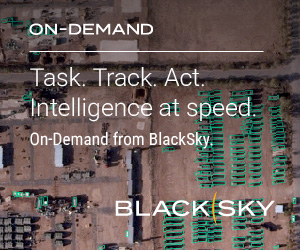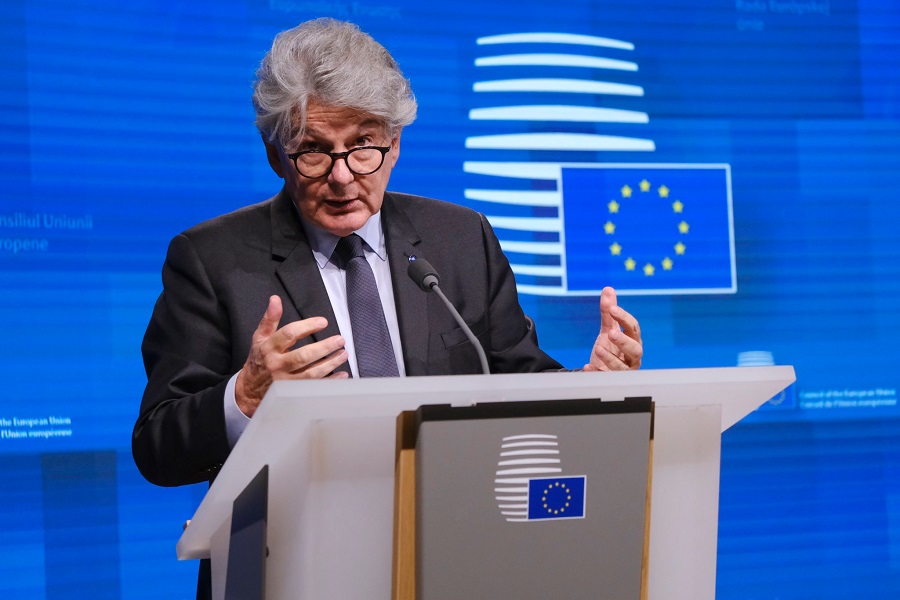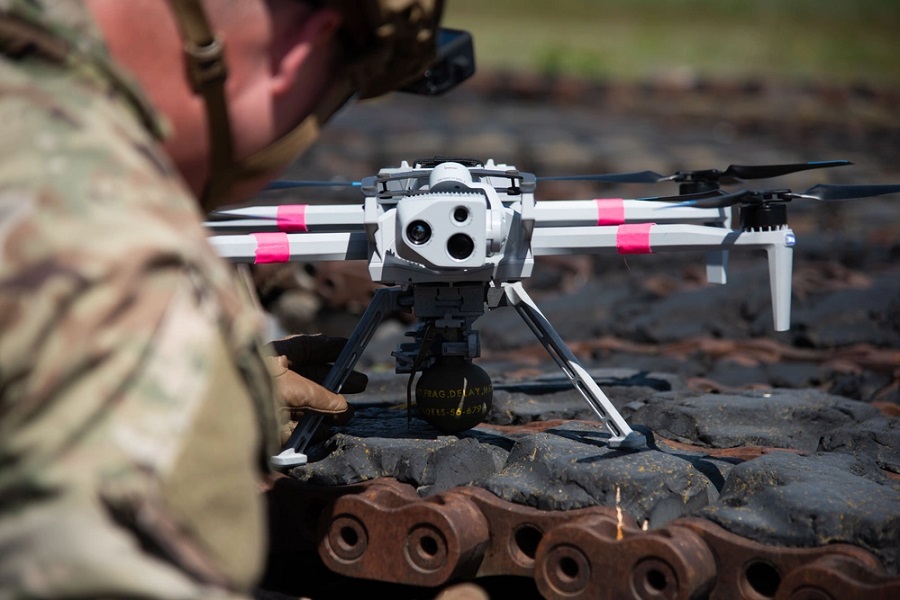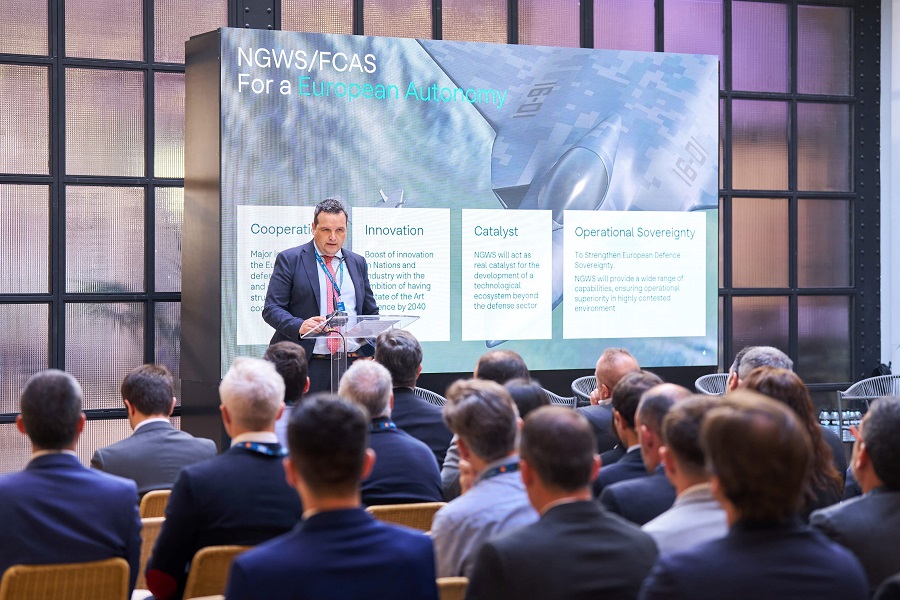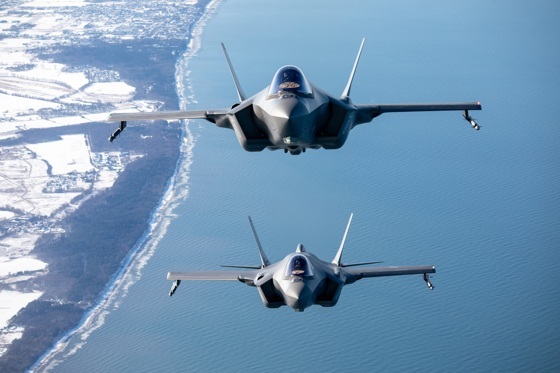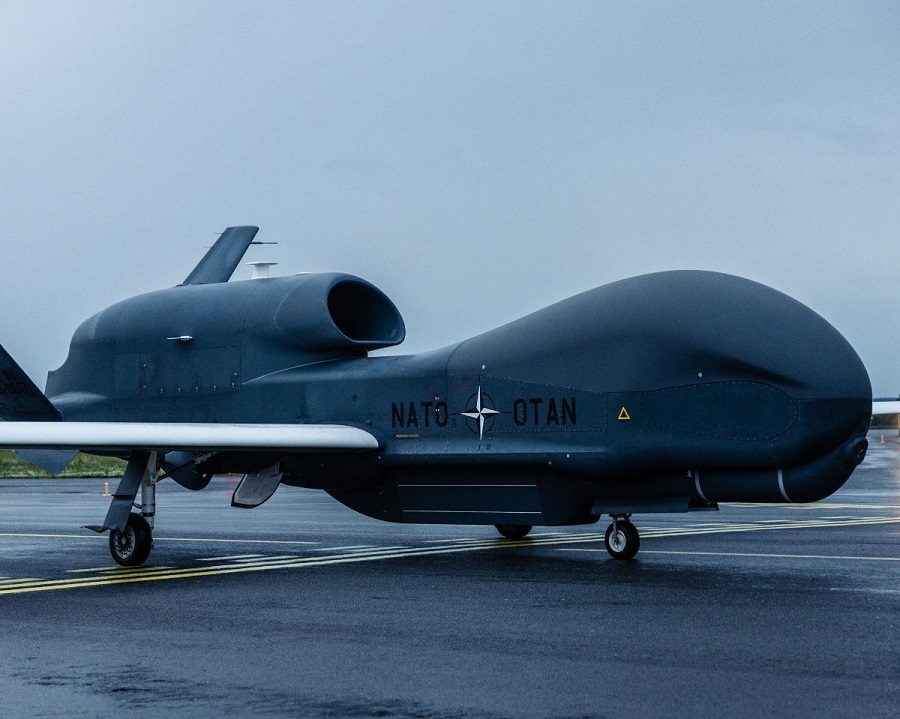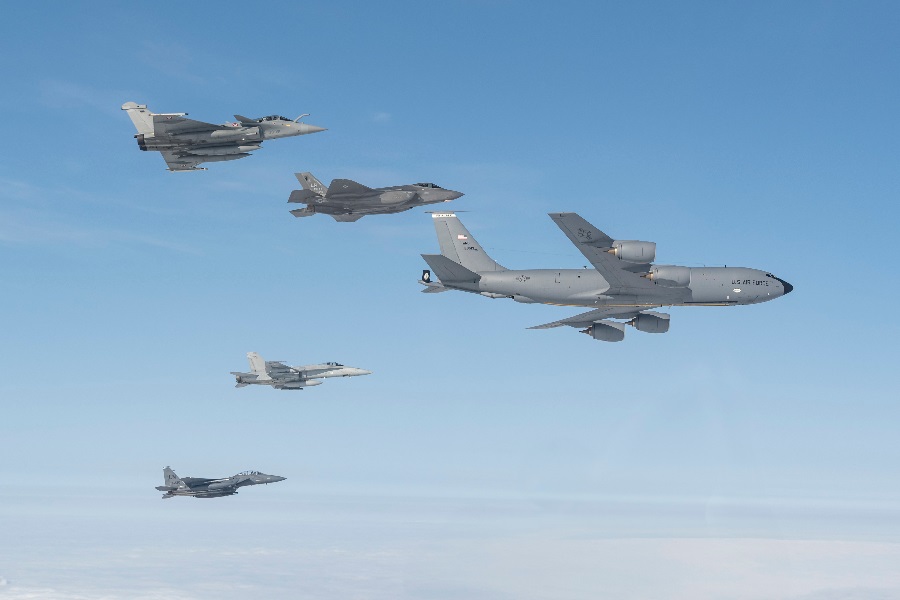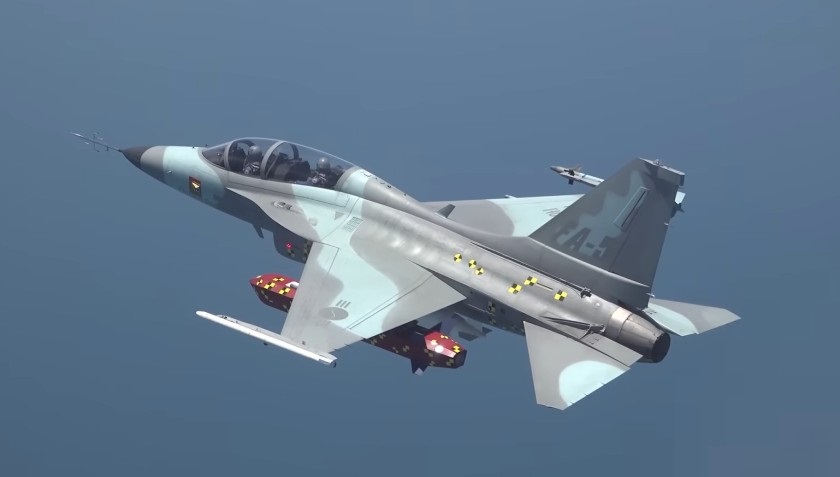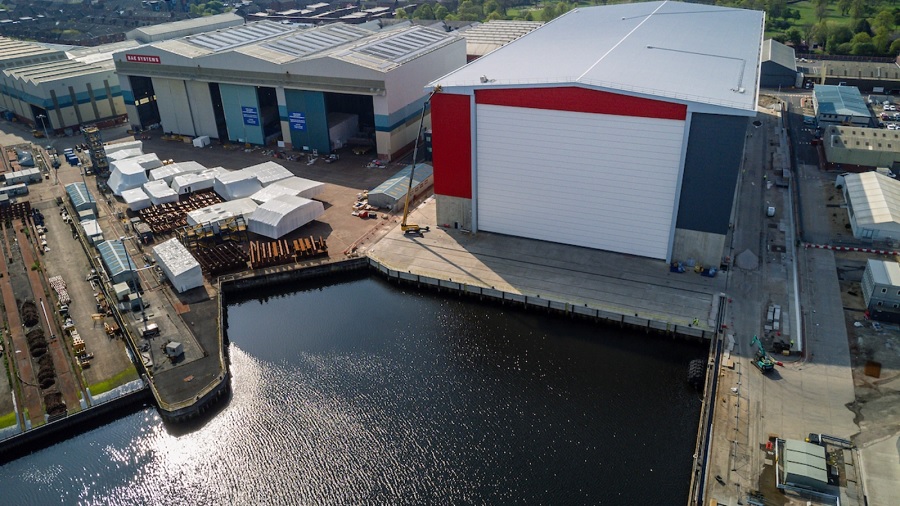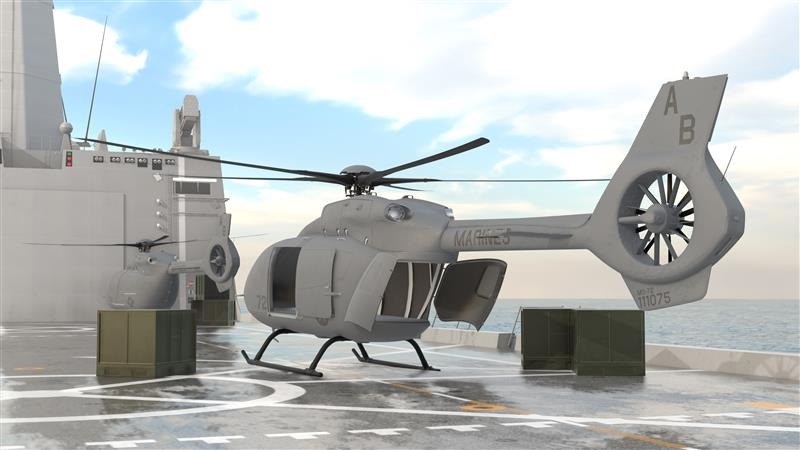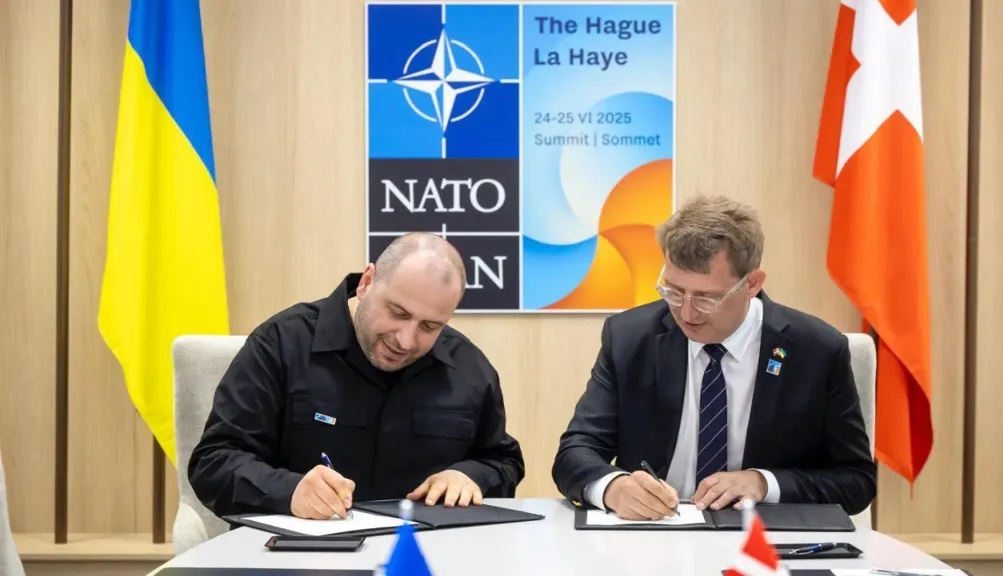With this new Work Programme, the Commission unlocks new funding for defence projects to jointly develop strategic defence capabilities and technologies. It also introduces a series of new measures to promote defence innovation under the umbrella of the EU Defence Innovation Scheme (EUDIS).
The EDF will help reduce the fragmentation of investments in European defence capability development. It will also enhance industrial competitiveness and promotes interoperability throughout Europe. With the adoption of this work programme, the Commission will have invested more than €3 billion since the entry into application of the EDF Regulation in May 2021.
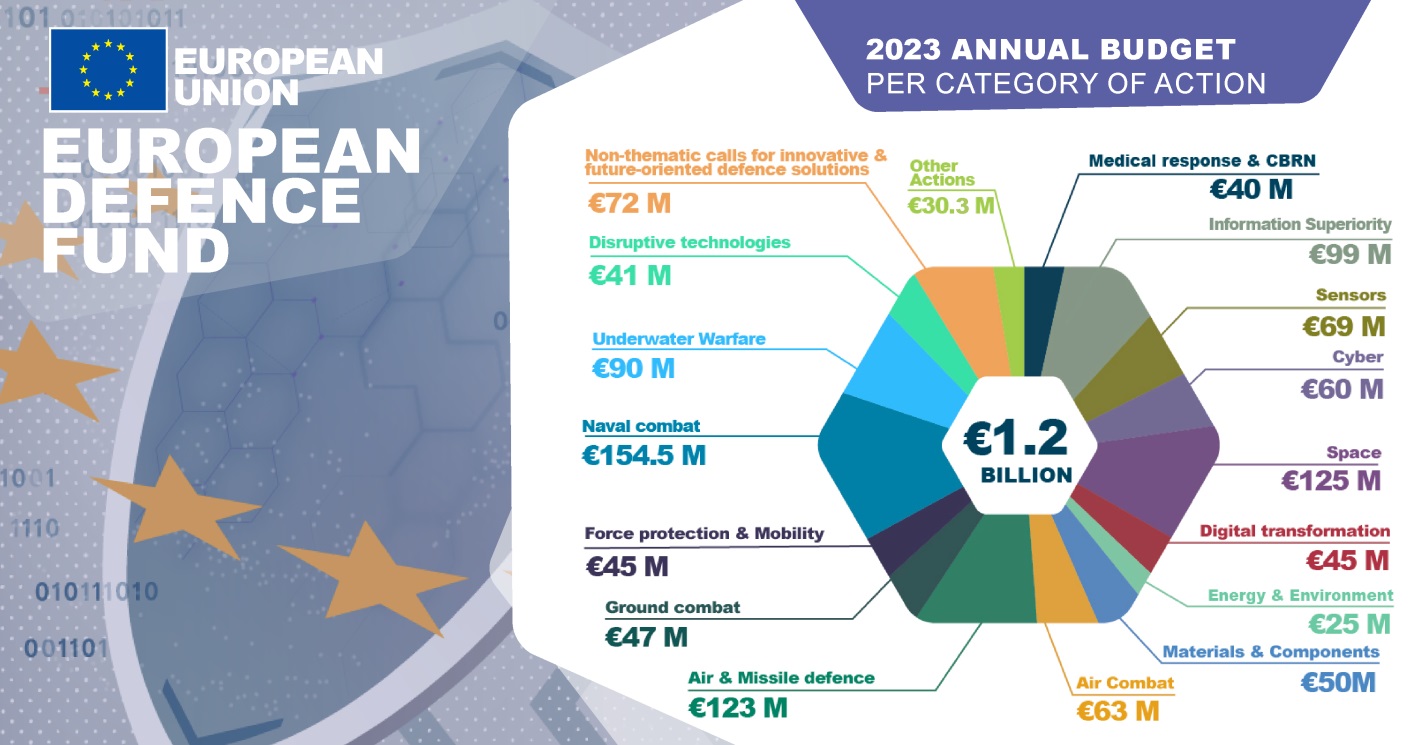
Supporting investment in European collaborative defence R&D projects
The 2023 Work Programme targets needed defence technologies and capabilities in line with the EU capability priorities agreed by Member States and further elaborated in the Strategic Compass. It addresses 34 topics structured along four thematic calls for proposals, as well as three calls focused on disruptive technologies and SMEs. The Work Programme will support emblematic projects in critical domains, such as space situational awareness, for countering hypersonic missiles and, in the naval domain, the prototype development of the European patrol corvette (EPC). The calls are expected to be opened for submission on 15 June 2023, with a deadline for submission of 22 November 2023.
The calls for proposals will prepare the ground for the development of next generation fighter systems, main battle tanks, European indirect fire capabilities, as well as strategic air transportation of outsized cargo, a core capability for rapid mission support worldwide. Covering all domains, dedicated hardware architecture solutions for energy efficient Artificial Intelligence (AI) systems will also be supported.
Funding dedicated to SMEs and research organisations calls for proposals for non-thematic R&D is increased by 50% compared to 2022 providing stronger support to small- and medium-sized defence companies.
In addition, the 2023 EDF Work Programme ensures continuity of funding for some important projects initiated under the previous EDF calls for proposals as well as the two EDF precursor programmes.
Supporting the EU Defence Innovation Scheme
Until 2027, the Commission aims at generating up to €2 billion investment into defence innovation, triggered by the EDF, under the EUDIS.
With EUDIS, the Commission will support innovative entrepreneurs, start-ups and SMEs, to help them break through traditional entry barriers, bring ideas to the market and make a difference for EU security and defence. EUDIS gradually introduces a wide range of support measures to strengthen the EU defence innovation ecosystem. The 2023 EDF Work Programme will add three new EUDIS measures, allocating a budget of around €220 million for implementation of all measures.
In addition to already introduced EUDIS measures, such as calls for SMEs and on disruptive technologies, SME business-coaching, technological challenges, new EUDIS measures will include:
- A call for the organisation of a series of defence hackathon events across multiple European locations;
- Calls that include financial support to organisations (cascade funding) to support development of innovation test hubs;
- Specific calls designed to support the further exploitation of EU civil-funded research to test its applicability for military end users;
- €20 million for defence equity facility (similar to 2022);
- The Commission will further develop matchmaking activities to accelerate business partnerships.
The Scheme will help implement the EU’s 2021 Action Plan on synergies between civil, defence and space industries. EUDIS will continue to work in close partnership with the European Defence Agency’s (EDA) Defence Innovation Hub (HEDI) to support defence innovation throughout the life cycle of products and ultimately enhance the defence capabilities in the EU Member States. EUDIS is bringing under the same umbrella actions within, but also beyond the European Defence Fund (EDF).
Background
The European Defence Fund is the Commission’s instrument to support defence R&D and cooperation. Without substituting Member States’ efforts, it promotes cooperation between companies of all sizes and research actors throughout the EU and Norway (as associated country). The EDF supports competitive and collaborative defence projects throughout the entire cycle of research and development, focusing on projects leading to state-of-the-art and interoperable defence technologies and equipment. It also fosters innovation and incentivises the cross-border participation of SMEs. Work programme and priorities are defined based on the defence capability priorities agreed by Member States within the framework of the Common Security and Defence Policy (CSDP), and particularly in the context of the Capability Development Plan (CDP).
The EDF is endowed with a budget of €7,953 billion for the period 2021-27 divided into two pillars:
- €2,651 billion will be allocated to funding collaborative defence research to address emerging and future security threats;
- €5,302 billion will co-finance collaborative capability development projects.
Between 4% and 8% of the EDF budget is devoted to development or research for disruptive technologies having the potential to create game-changing innovations.
The EDF is implemented through annual work programmes focusing on:
- Emerging challenges to shape a holistic approach to the modern battlespace, such as defence medical support, Chemical, Biological, Radiological and Nuclear (CBRN), biotech and human factors, information superiority, advanced passive and active sensors, Cyber and Space;
- Bringing a key technology push to the EDF which are relevant across capability domains, such as digital transformation, energy resilience & environmental transition, materials and components, disruptive technologies and open calls for innovative and future-oriented defence solutions, including dedicated calls for SMEs;
- Excellence in warfare to enhance the capability pull and support ambitious defence systems, such as air combat, air and missile defence, ground combat, force protection and mobility, naval combat, underwater warfare and simulation & training.
More information:
Work Programme European Defence Fund

